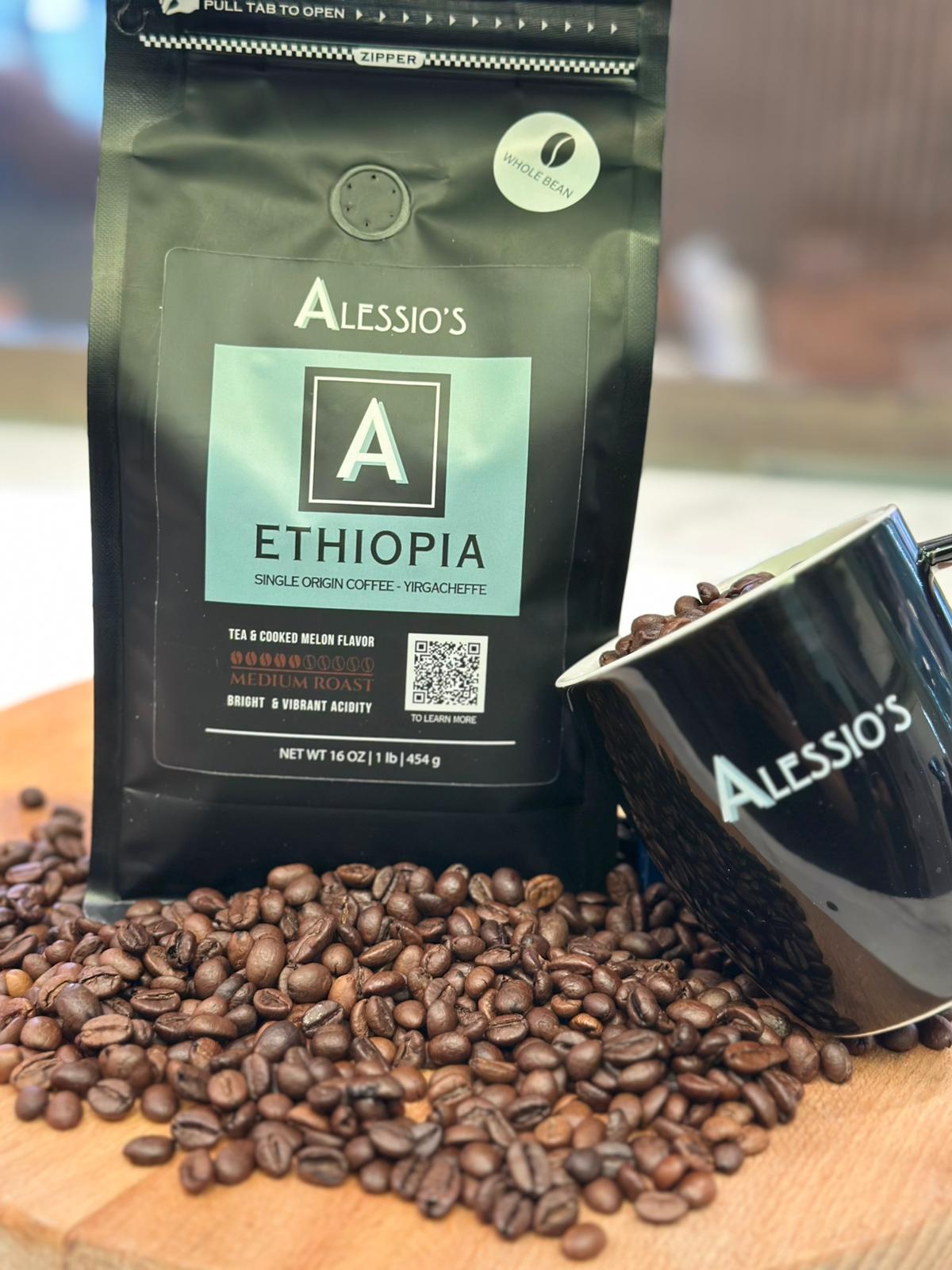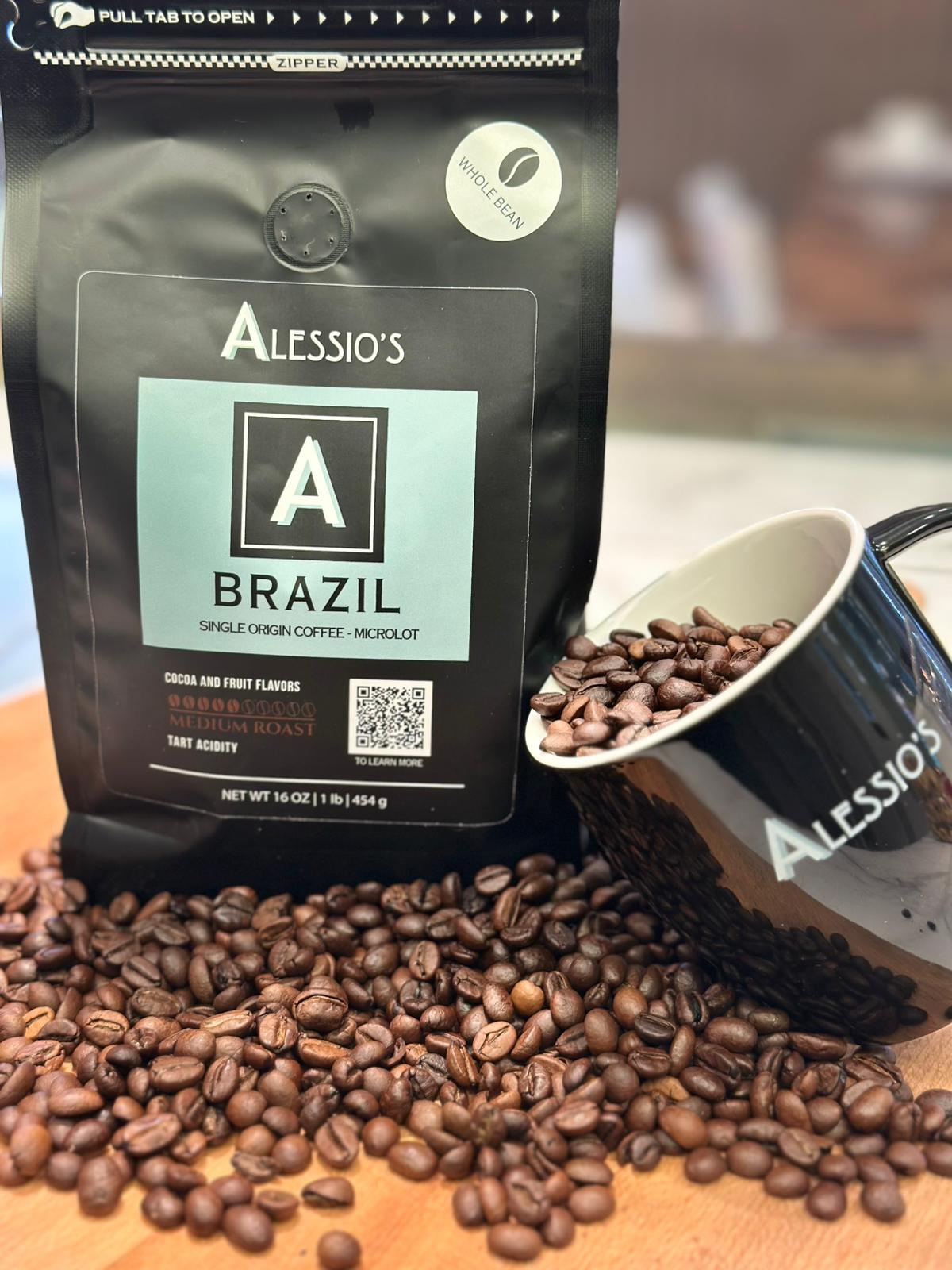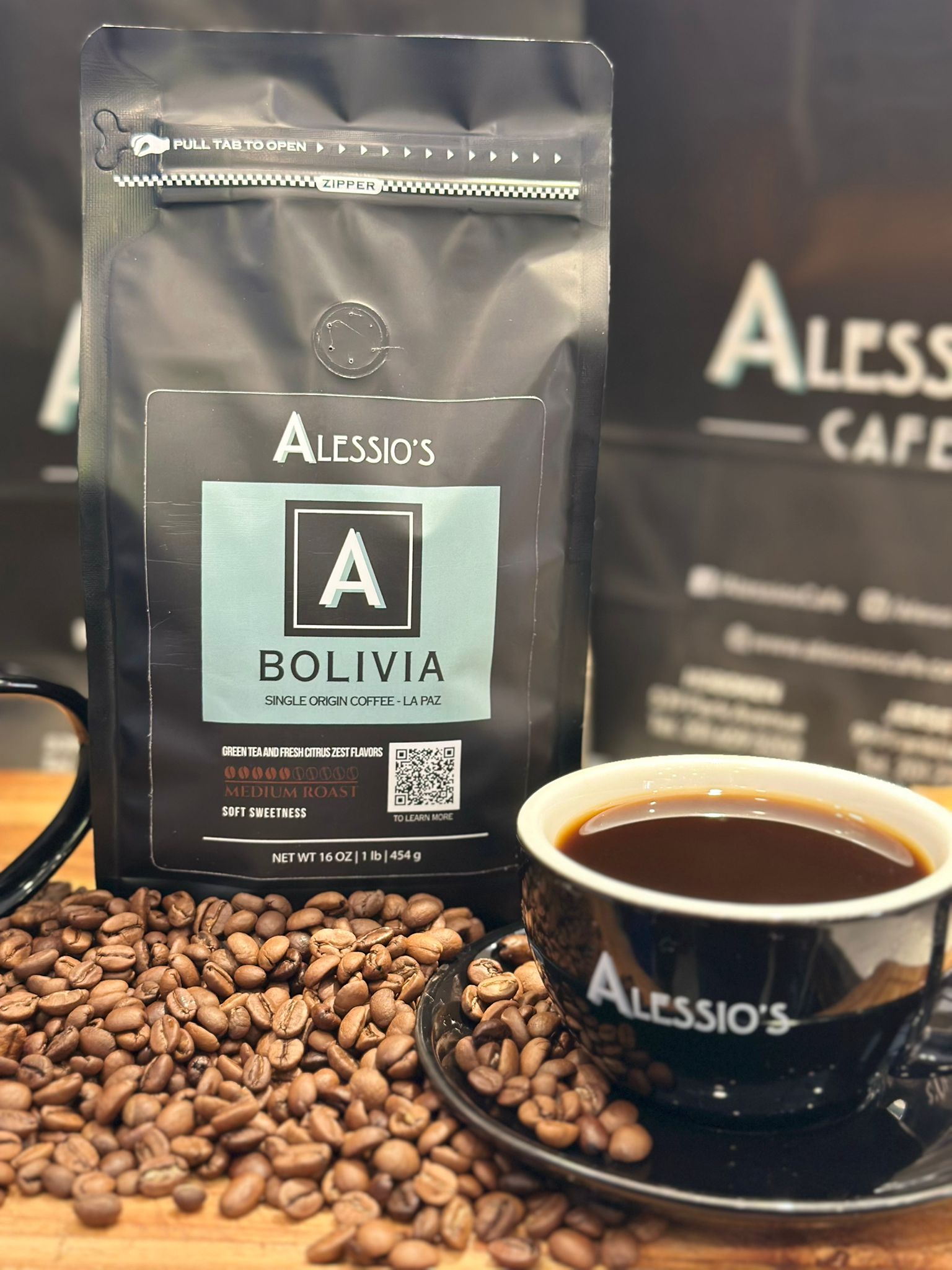
Ethiopia – Yirgacheffe – Mid Roast
Process: Natural
Variety: Heirloom Ethiopian Varieties
Elevation: 1900–2400 MASL
Region: Yirgacheffe
Country: Ethiopia
Country
Ethiopia
Among coffee-producing countries, Ethiopia holds near-legendary status not only because it’s the “birthplace” of Arabica coffee, but also because it is simply unlike every other place in the coffee world. Unlike the vast majority of coffee-growing countries, the plant was not introduced as a cash crop through colonization. Instead, growing, processing, and drinking coffee is part of the everyday way of life, and has been for centuries since the trees were discovered growing wild in forests and eventually cultivated for household use and commercial sale.
Region
Yirgacheffe
Yirgacheffe has become famous for coffees that tastes like blueberries. This region is plentiful. The thick vegetation is a product of the warm tropical climate with moderate wet and dry seasons. Most coffee is shade-grown by small producers using organic practices. Coffees are cultivated from 1600 to 2400 masl in these highlands. The multitude of microregions creates complex profiles depending on the washing station a particular coffee is from
Process
Natural
Natural coffees are typically delivered the day they are harvested, and are first sorted for ripeness and quality before being rinsed clean of dirt. Then they are spread on raised drying beds or tables, where they will be rotated constantly throughout the course of drying. Drying can take an average of 8–25 days, depending on the weather.
Variety
Heirloom Ethiopian Varieties
Although this offering is not traceable to a single variety, it is comprised of native heirloom varieties cultivated in Ethiopia.

Brazil – Sul de Minas – Mid Roast
Farm: Fazenda Samambaia
Process: Natural
Variety: Common Brazilian Varieties
Elevation: 750–1100 MASL
Region: Sul de Minas
Country: Brazil
Farm
Fazenda Samambaia
Since 1896 Cambraia family has been growing coffees in Santo Antônio do Amparo Village - Sul de Minas region - Brazil. Fazenda Samambaia has several top 20 finishes in the Cup of Excellence. This farm is roughly 1800 hectares with 619 hectares dedicated to coffee and harvests typically from June to August. They employee 51 people full time at the farm. Henrique Dias Cambraia is the owner and believes that his farm's success has a great deal to do with its geographic location between the Grande River basin and the Sao Francisco River Basin.
Program
Microlot
Brazilian microlots are a relatively new entry into the world of specialty coffee, compared to larger-scale farming operations that are common here. Our microlots are typically either a small selection of specialized coffee kept separate from the total volume of coffee a single estate produces, or they are sourced from the many smallholder producers (10–30 hectares) that exist throughout our usual sourcing regions. Microlots are expected to have both the highest level of quality and, subsequently, the highest tier of pricing.
Process
Natural
Brazilian Naturals are picked either selectively by hand or strip-picked by hand or mechanically for more commercial quality. They are then typically spread to dry on patios or, in the production of some specialty coffees, dried on raised beds. Drying can take 20–25 days, depending on the weather.
Variety
Common Brazilian Varieties
Although this offering is not traceable to a specific variety, Brazil's most commonly grown coffee varieties are Bourbon, Yellow Bourbon, Catimor, Catuai, Maracaturra, Maragogype, and Typica.

Bolivia – La Paz – Mid Roast
Farm: Eleutaria Quenta
Process: Washed
Variety: Red Catuai
Elevation: 1550 MASL
Region: La Paz
Country: Bolivia
Farm
Eleutaria Quenta
Finca Eleuteria, owned by Eleutaria Quenta, is a coffee farm located in Bolivia's La Paz region. The farm is known for cultivating the Red Catuai variety.
The La Paz region's high altitudes and favorable climate contribute to the exceptional quality of coffee produced at Finca Eleuteria. Eleutaria Quenta's dedication to sustainable farming practices and attention to detail in processing have positioned her farm as a notable producer in Bolivia's specialty coffee industry.
Through her commitment to quality and sustainability, Eleutaria Quenta continues to contribute to Bolivia's growing reputation as a source of exceptional specialty coffees.
Program
Microlot
For the first time in a decade, we traveled to Bolivia with new relationships and a renewed focus on discovery in the 2021-22 harvest, working with Felix Chambi. Felix is a pioneer in Bolivian specialty coffee, having the only SCA-certified sensory lab in the country called Lata 16. With Felix, we cup lots from the La Paz departments, specifically in the La Asunta and Caranavi municipalities. Many farmers in this area are committed to building the infrastructure and knowledge to produce specialty coffees. We are excited to continue our sourcing efforts in Bolivia, discovering new cups and bringing these coffees to market.
Process
Washed
Processing in Bolivia is very similar in practice to Colombia’s specialty producers, as many Bolivian smallholders invest in processing infrastructure. In washing, the coffee is sorted, depulped, fermented, and dried for about two weeks at the farm level.
Variety
Red Catuai
A cross of Caturra and Mundo Novo made by Instituto Agronômico de Campinas, Brazil; released in 1972.
